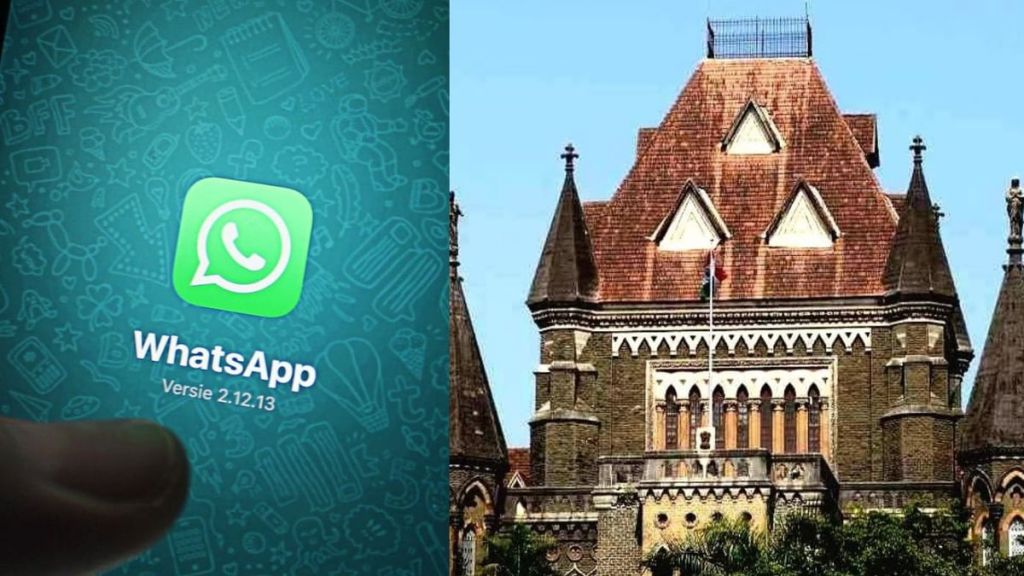
The Aurangabad bench of the Bombay High Court has held that a WhatsApp message is encrypted end to end unless the recipient chooses to forward it, it can only be read by the person who receives it; hence the sender cannot be booked for defaming a person in society.
The court quashed an FIR against one Ashwinkumar Sanap after terming his arrest as “illegal” and directed the investigating officer (IO) and the complainant to pay Rs 2 lakh and Rs 50,000 respectively to Sanap.
An FIR was registered by Pandit Tare, a constable in his personal capacity, against his sister’s ex-husband Sanap, for allegedly defaming his family by sending defamatory message on a WhatsApp message to a Tare’s relative. The constable with the Hingoli police station alleged that Tare sent the message to their relative which showed his “intent” to defame the in-laws. He was arrested on August 6, 2024 at midnight.
“We have observed in the past also that if the message is on WhatsApp, which is encrypted end to end,unless the recipient chooses to forward it, it can only be read by the person who receives it. The sender then cannot have or intended to have intention to defame a person in society. Here, the First Information Report does not say that, that message was put on some group or to various persons individually,” a bench of Justices Vibha Kankanwadi and SG Chapalgaonkar said on October 23.
The complaint alleged that the message sent by Sanap claimed that his ex-wife used to shoot obscene clips of the couple together and circulate them in her family group and that the constable’s family harassed his family.
The bench observed that the content of the WhatsApp message cannot be said to be an offence under the Section 67-A of the Information Technology (IT) Act, which criminalises publication, transmission, causing to publish or transmit in electronic form any material that contains sexually explicit act or conduct.
It also questioned how the police invoked Section 66-A of the IT Act, which was held unconstitutional by the Supreme Court. It is beyond imagination that before the arrest the IO will not apply his mind as to which are the sections those are invoked, what is the punishment and whether he can make a legal arrest in such situations. “The realisation of the wrong section, after the arrest of a person, would be a suicide attempt by an Investigating Officer, because he is bound to follow the law before and at the time of effecting arrest,” the bench observed.
Highlighting the police highhandedness', the HC said action of the police machinery was “in utter disregard” to the law laid down by the apex court. “Certainly, when this arrest is made at midnight, it is in total violation of the personal liberty enshrined under the Constitution of India,” it added.
The judges also deprecated the magistrate for passing “mechanical order” of granting custody. It then directed the IO to pay Rs2 lakh and the complainant Rs50,000 to Sanap.